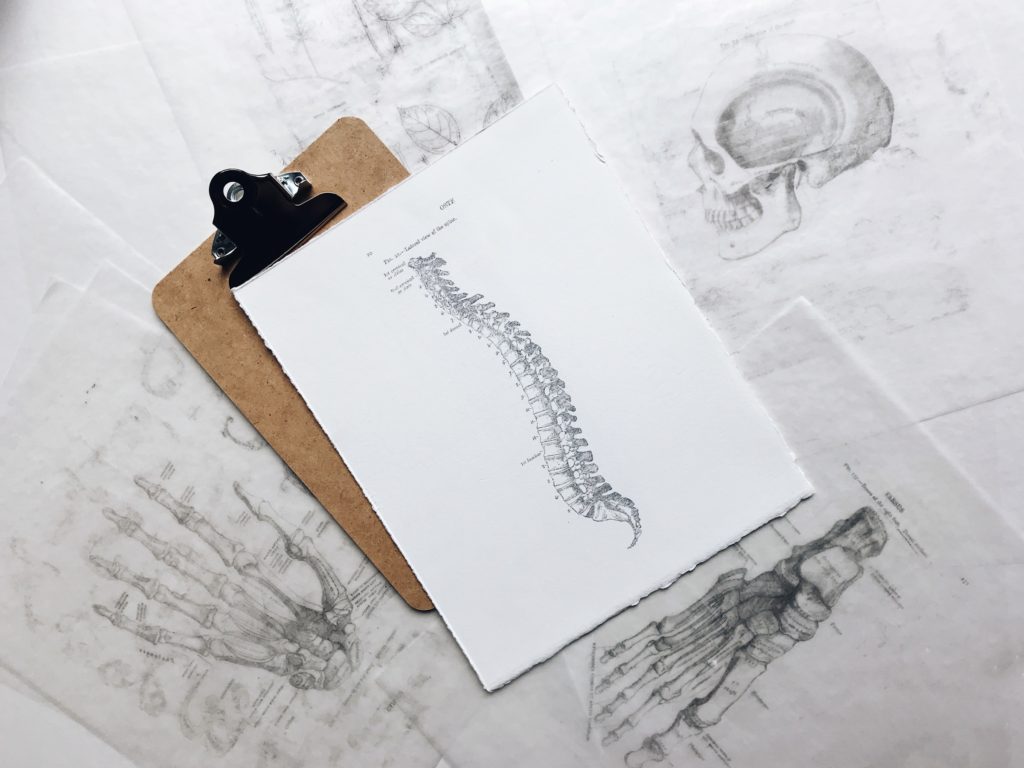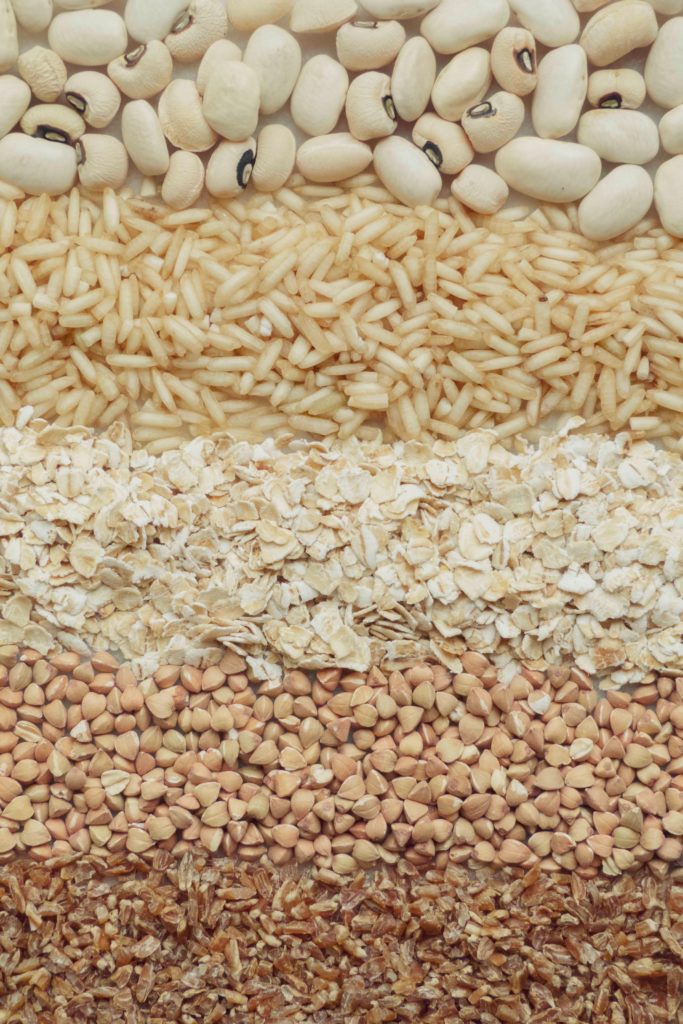Menopause is an inevitable phase in every woman’s life. This natural biological process marks the end of the reproductive stage for a woman. The ceasing of regular menstrual cycles or the “monthly period” is a clear indicator of menopause.
Hormonal changes in the body due to aging cause menopause. As you grow older, your ovaries produce less estrogen and progesterone. So, there is a drop in estrogen levels during the menopausal transition. It causes periods to become irregular and unpredictable. Even as the gap between periods increases, bleeding may be heavier or lighter than usual.
The stage before menopause is called perimenopause. Mayo Clinic suggests that some women start perimenopause as early as when they are in their mid-30s. Even if you do not observe symptoms at this age, the progression towards menopause will be evident in your 40s. Therefore, you can conclude that you are in menopause if it has been more than twelve months since your last period.
If you are like most women, you are probably dreading the various discomforts of this phase. Unpredictable and irregular periods are only part of the problem. You may also experience hot flashes, night sweats, weight gain, disturbed sleep, and mood swings. Menopause also increases your vulnerability to certain diseases.
So, menopause is undoubtedly a difficult transition. Fortunately, you can cope better if you prepare for it. Check out these expert tips to age gracefully and embrace this new phase in your life.
Tips for healthy aging

- Be physically active
All you need is thirty minutes of moderate-intensity exercise daily to help your body tackle aging issues. You do not need fancy equipment or even visit the gym.
Simple daily activities like taking the stairs, walking instead of driving to your destination, gardening, or even dancing will suffice. Make it fun by involving friends and family, and you will have a reason to work out regularly.
Aim to do strength-building exercises at least twice weekly to replace lost muscle mass. Exercising will also slow down mineral loss from bones and delay the onset of osteoporosis.

- Focus on good bone health
The fall in estrogen level will cause various changes in your body. For example, it includes higher bone loss, which increases the chance of osteoporosis. Osteoporosis causes bones to become weak and prone to fractures. The good news is that you can counter osteoporosis with the following dietary changes.
Consume more calcium for bone health:
Dairy products, being rich sources of calcium, are often linked to bone health. However, vegan diets lack dairy. It has led many experts to believe that vegans are more susceptible to osteoporosis. But the following facts force us to re-evaluate this claim!
- One of the most common and dangerous consequences of osteoporosis is hip fractures. Interestingly, the incidence of hip fractures is highest in Sweden and North America, where dairy consumption levels are significantly high. Meanwhile, Asia and Africa, with considerably lower dairy consumption data, record fewer hip fractures.
- Studies suggest that nearly 75% of women lose their lactase enzymes after weaning. It makes us wonder whether dairy products are indeed essential for bone health.
Have you ever wondered whether there could be sources other than dairy to help us meet our calcium requirements?
The dietary practices in Asian countries seem to suggest so. Asian diets do not focus much on dairy products. However, they contain a lot of soy-rich foods, fortified plant milk, and greens.
At this point, I would like to clarify that not all green vegetables are good sources of calcium. Cruciferous greens like turnips, mustard greens, collards, and kale are rich in calcium. However, other greens like spinach, Swiss chard, and beet greens do not supply as much calcium. Calcium is also present in legumes, nuts, and seeds in smaller quantities.
So, there are plenty of alternative calcium sources other than dairy. Vegans can get calcium when their diet contains cruciferous vegetables with bio-availability of calcium, soy products, and legumes.
Improve protein intake for better bone health:
An older theory suggested that lower protein intake helped calcium retention in bones. However, the Framingham Osteoporosis study on the elderly challenged this theory. It showed that lower protein intake led to increased bone loss. Also, higher animal protein intake didn’t adversely affect the skeleton. So, increase your protein intake to enhance your bone health.

- Increase your intake of whole grains
Whole grains are rich in nutrients and fiber. They contain Vitamin B, namely thiamine, niacin, riboflavin, and pantothenic acid. Scientific studies suggest that a diet that is rich in whole grains can reduce the risk of heart disease, cancer, and premature death.
In a study involving more than 11,000 postmenopausal women, it was observed that consuming 4.7 grams of whole-grain fiber per 2,000 calories per day reduced the risk of early death by 17%. It was in comparison to eating only 1.3 grams of whole-grain fiber per 2,000 calories. Hence your diet should contain plenty of whole grains during and after menopause.
Food containing whole grains includes brown rice, whole-wheat bread, barley, quinoa, and rye. Please check the label to ensure that the food you choose is rich in whole grains. Products primarily made with grains usually list “whole grain” as the first ingredient.

- Eat plenty of veggies
Do you know that a one-year study on 17000 menopausal women found that those who consumed more vegetables, fruit, and soy experienced a 19% reduction in hot flashes than those who didn’t? It was the effect of a healthier diet. Additionally, it also offered weight loss benefits.
Fruits and vegetables are packed with minerals, vitamins, and fiber. They are also a rich source of antioxidants and offer excellent benefits during menopause. Cruciferous vegetables are particularly beneficial for post-menopausal women. Broccoli, for instance, reduces the risk of breast cancer. In addition, it decreases a form of estrogen linked to breast cancer and increases the level of another form of estrogen that protects against cancer.
Dark berries are another highly recommended food. For example, an eight-week study on 60 menopausal women revealed that 25 grams a day of freeze-dried strawberry powder could lower the blood pressure of the participants when compared to the control group.

- Limit your intake of certain ingredients
Your body will thank you for cutting down on certain foods to stay healthy during menopause. Salt is such an ingredient. For example, a study of over 9,500 postmenopausal women linked sodium intake of more than 2 grams per day to a 28% higher risk of low bone mineral density.
Additionally, due to the decline of estrogen, you have a higher risk of developing high blood pressure after menopause. So, you can lower your sodium intake to reduce the chances of developing this condition.

- Drink plenty of water
There are multiple benefits to drinking more water. Water moves fiber through your digestive system, keeps you hydrated, and mitigates hot flashes. Also, load up on plenty of fresh vegetables and fruits. It will improve your body’s water reserves and provide healthy nutrients.
So, in a nutshell….
Menopause is uncomfortable but unavoidable. It can make you feel physically and mentally overwhelmed. However, remember that the discomforts are temporary. Focus on a healthy diet, exercise, and lifestyle habits to cope with the condition. It will better help you handle hot flashes, mood swings, sleeplessness, and other menopause-related discomforts. Prepare for menopause with these expert tips and sail through it smoothly!
Did you enjoy reading this article? Please tag me on Instagram @cookingmypoundsoff. I would LOVE to hear from you!!! Truly yours, Elena!
The content of this article should not be considered a substitute for professional medical expertise or treatment. This website is not intended to be a substitute for the advice of a physician, certified dietitian, or other licensed professional. Always consult with your primary care provider!





